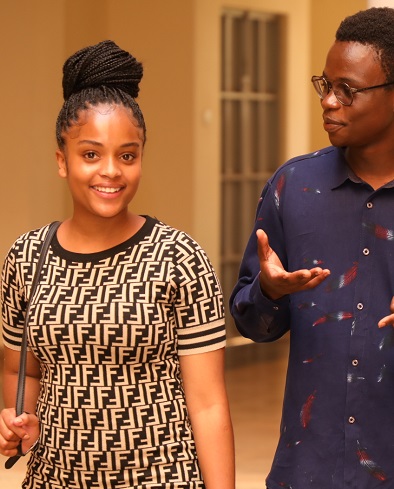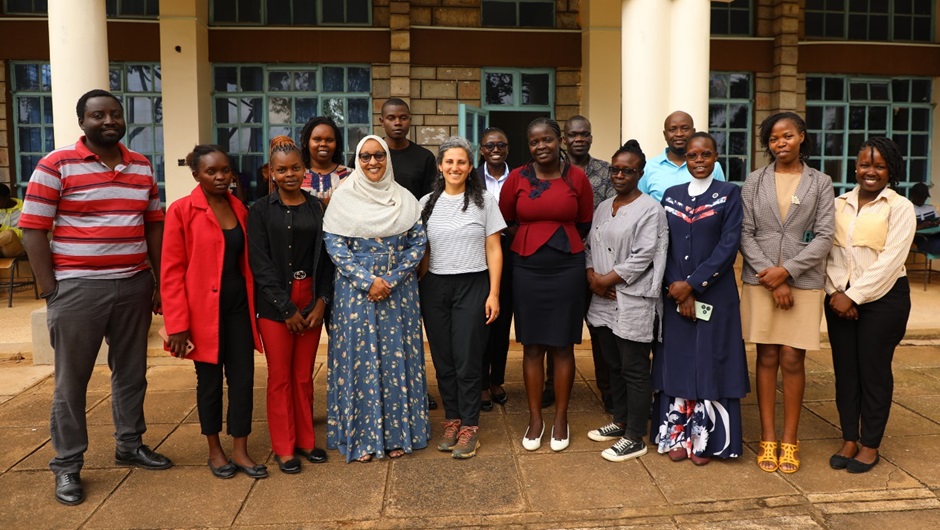On 11th to 13th November, 2024, Masinde Muliro University of Science and Technology (MMUST) hosted an eye-opening three-day interdisciplinary workshop titled ‘How to Research Traces’. The workshop brought together MMUST’s fifteen (15) postgraduate students from diverse fields to explore innovative and creative research methods; photography, movement, and site-writing. The workshop blended interactive discussions, insightful presentations, and practical off-campus fieldwork, encouraging participants to push the boundaries of traditional research approaches. The event was spearheaded by MMUST’s Director of International Relations and Academic Linkages, Dr. Umulkher Ali, and facilitated by Ms. Keren Kuenberg, an architectural researcher and PhD candidate at ISCTE Lisbon. The workshop was part of the project, ‘How to research traces? Exploring creative research methods in researching the afterlives of past interventions,’ funded by the European Research Council.
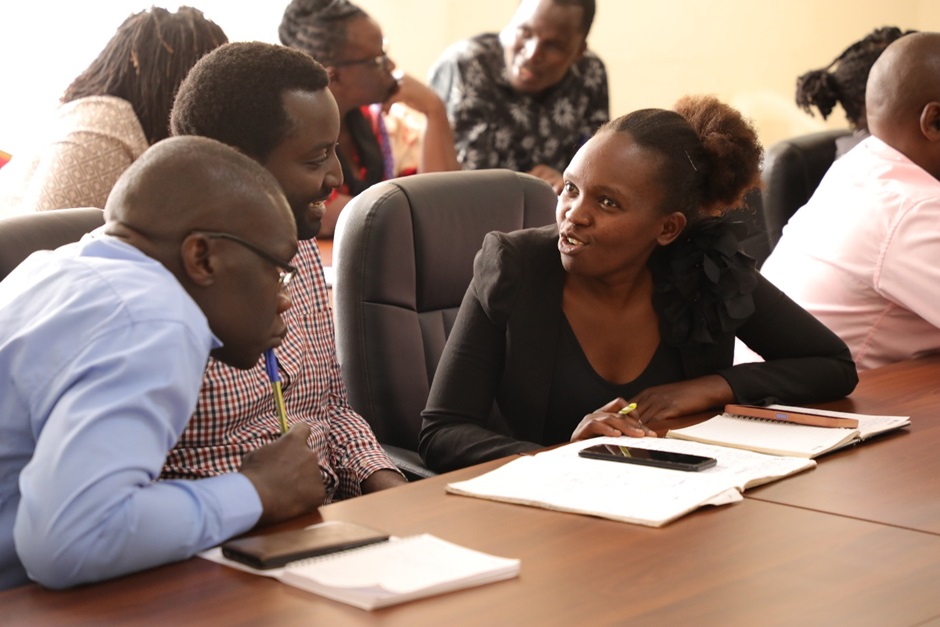
Postgraduate students engaging in group discussions.
Speaking at the event, the Deputy Director of Postgraduate Studies, Dr. Consolata Ngala expressed her appreciation for the workshop, noting that it provides postgraduate students with a valuable opportunity to explore innovative research methods. She highlighted some of the main challenges faced by students, including identifying research gaps, critically reviewing literature, analyzing and interpreting data, and selecting the most appropriate research methods to explore.
“Thank you, Ms. Kuenberg for bringing this workshop to MMUST and for working closely with our postgraduate students. Your efforts have truly helped them open their minds to new and innovative research methods, encouraging them to think beyond the conventional and explore exciting possibilities in their academic journeys,” said Dr, Ngala.
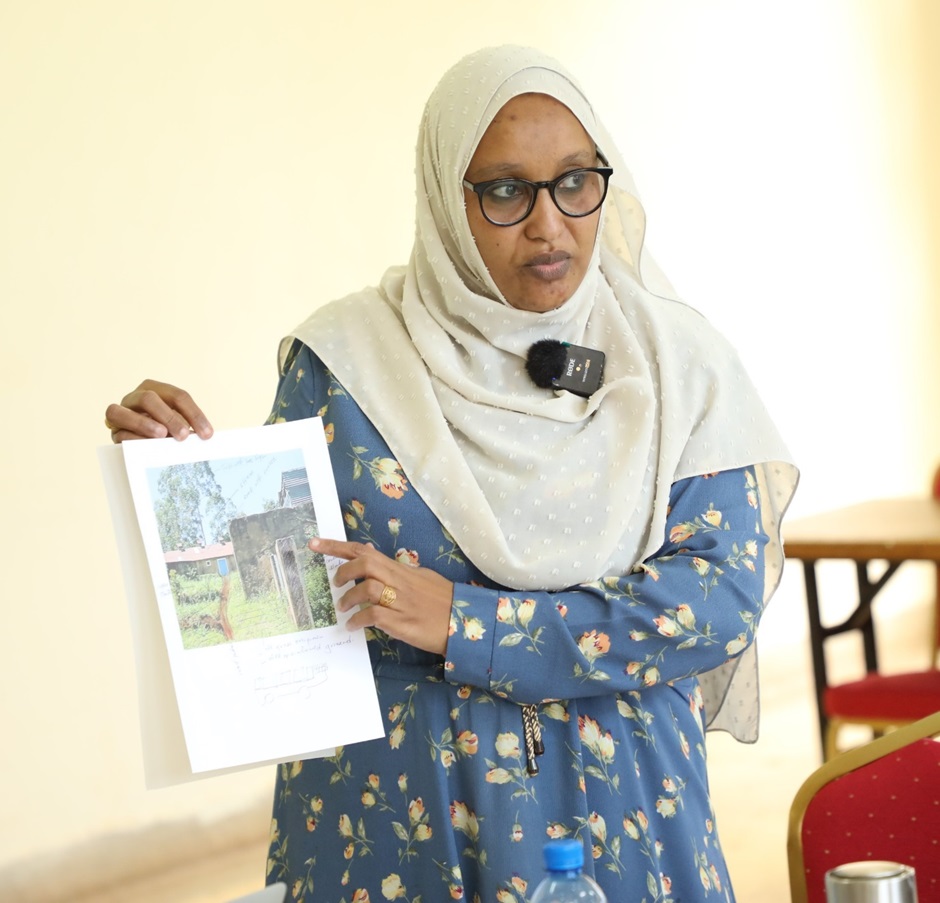
MMUST’s Director of International Relations and Academic Linkages, Dr. Umulkher Ali, reviewing a photo captured during the students’ off-campus practical fieldwork.
Dr. Umulkher Ali shared her experience working with Ms. Kuenberg in tracing the remains of the forgotten Finnish KEFINCO water project. She highlighted how rewarding it was to apply innovative, modern methods to rediscover the project’s legacy and unearth forgotten narratives. Dr. Umulkher expressed confidence that by embracing these unconventional techniques, students could connect more deeply with their research subjects, allowing them to uncover layers of meaning and insights often missed by traditional methods.
“These approaches will not only enrich your research, but will also help you engage with the stories, people, and places that ought to shape your research,” she said.
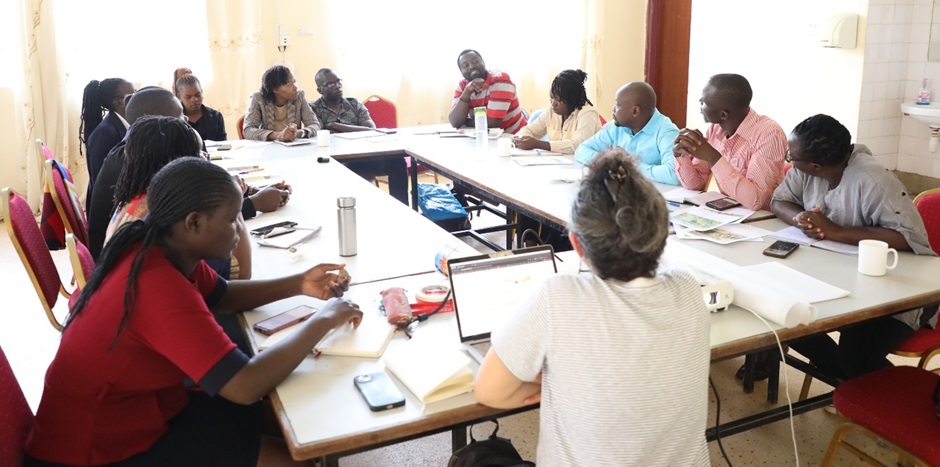
Participants engaging in a round-table discussion, exchanging experiences and insights gained from exploring innovative research methods during the fieldwork session.
Ms. Kuenberg noted the challenges and rewards of uncovering hidden elements in research. “It is not easy to see the unseen within one’s research, however, when we engage in intentional, unhurried observation, capturing meaningful photos on-site, and recording content thoughtfully, we allow ourselves to slow down and truly immerse ourselves in the research process. This mindful approach opens pathways to new insights and knowledge that might otherwise remain hidden,” she explained. Ms. Kuenberg encouraged participants to embrace a more deliberate, reflective approach, stressing that such a method often uncovers layers of understanding that fast-paced analysis might overlook.
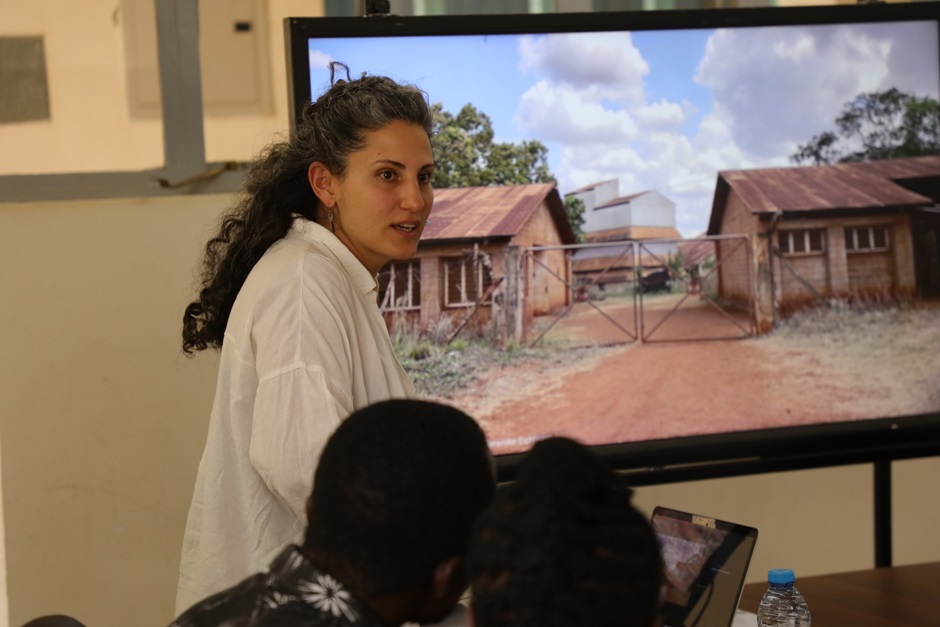
Ms. Keren Kuenberg demonstrating the use of images as a tool for gathering information to participants.
The workshop also included a debriefing session where students had the opportunity to reflect on their fieldwork experiences, share their insights, and discuss how the creative methodologies introduced could be applied to their ongoing research projects. This collaborative exchange allowed postgraduate students to integrate the lessons learned from both the fieldwork and the workshop into their academic work, broadening their research perspectives and improving their approach to complex questions.
The ‘How to Research Traces’ workshop is a prime example of MMUST’s commitment to pushing academic boundaries, fostering interdisciplinary collaboration, and enhancing the research skills of its students. By participating in this workshop, MMUST faculty and students are not only expanding their methodological expertise but also contributing to a culture of inquiry that embraces innovative approaches to uncovering historical and social insights.
By Caren Nekesa
Photos by Joshua Chiro


